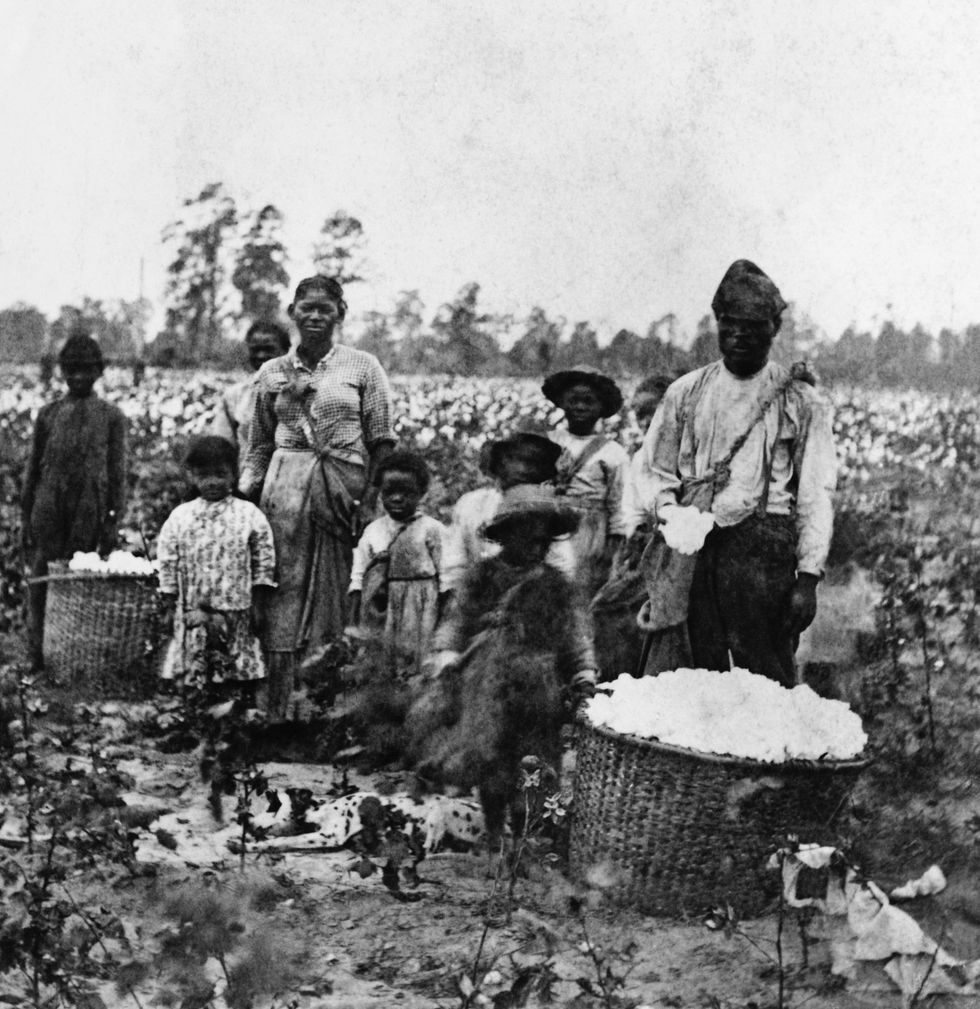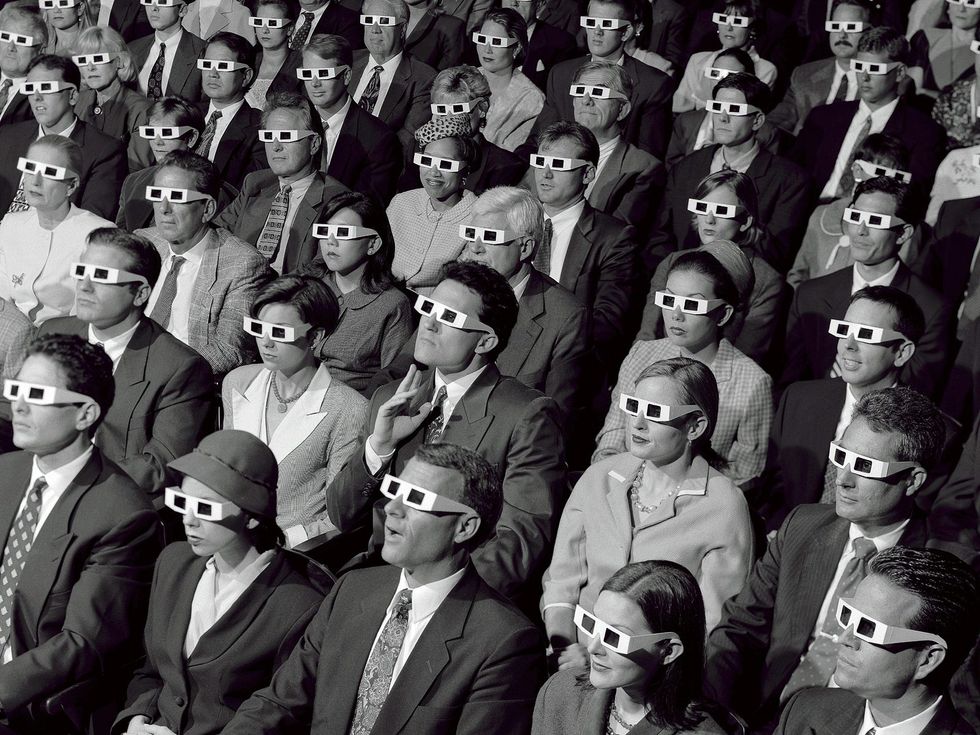With headlines like “The Average Black Family Would Need 228 Years to Build the Wealth of a White Family Today” and “White People Are More Likely to Deal Drugs, But Black People Are More Likely to Be Arrested for It” and “Wage Gap Between White and Black Americans Is Worse Today Than In 1979," it is clear that, at the very least, it is questionable whether black Americans are yet truly equal with their white counterparts.
These vast inequalities today are perpetuated by instruments like de facto segregation, poor inner city education, and the mass incarceration state, all three of which place burdens disproportionately on black communities. Because of this long history of oppressing and stealing from black Americans and the sheer magnitude of the racial inequalities felt in nearly every facet of life, it has become a moral and practical necessity that the United States rectify its wrongs and work to ameliorate the situation, to provide some form of “reparations.”
When people hear the word “reparations,” they often get scared away with visions of the government coming and eliciting fines for “being white” to then distribute to black Americans to right past wrongs. This is a gross misrepresentation of what reparations would actually be; very rarely will you see any intellectual argue for a flat disbursement made to all black Americans. Not only would that not serve at all to fix the underlying problems causing the inequality, it would also fail to treat the situation with the nuance and complexity it deserves. Instead, what these reparations must be are structural reorganizations and legislative ventures to work to rectify the institutionalized inequalities undermining the possibility of achieving full equality for black Americans. They must be, as Atlantic essayist Ta-Nehisi Coates writes, “more than recompense for past injustices—more than a handout, a payoff, hush money, or a reluctant payout. What I’m talking about is a national reckoning that would lead to spiritual renewal.”
Though the history books make it abundantly clear, one need not look further than the current day to see that reparations are due. Recent statistical analysis conducted by the New York Times suggests the statistical inequalities between black and white Americans are far larger--and they are not decreasing--than could be explained away by mere coincidence. Black Americans are over twice as likely as their white counterparts to be unemployed--a gap that has remained stagnant since the 70’s--and are more likely to be jobless even if they have higher education levels than white peers. The median pay for black Americans is over 20% lower than for white Americans, something which has worsened in the past 30 years. Before the recession, the average white family held wealth equaling 4.3 times the wealth of the average black or Hispanic family; after the recession, this grew to 6.1 times. Similar discrepancies can be found in areas of education, housing, and criminal justice issues. These population-wide inequalities are too large to be explained away by personal responsibility, lacking families, and coincidence. Especially given that many of these inequalities have been improving either extremely slowly or not at all since the Civil Rights Era, it is clear that some sort of structural response is necessary.
There are, to be sure, reasonable objections to this course of action. In his essay for the National Review, Kevin D. Williamson notes that it would be unfair to levy the burden of past American transgressions on people of today and that reparations possibly would do very little to alleviate the socioeconomic disparities currently facing black Americans. He writes, “But the remedy Mr. Coates proposes would not satisfy the criterion of justice, nor is it likely that it would reduce or even substantially eliminate the very large socioeconomic differences that distinguish the black experience of American life from the white experience of it.” He adds, “There are still, after all, an awful lot of white people, and though many of them might be inclined to make amends under some sort of racial truce following the process Mr. Coates imagines, many of them might simply be inclined to prevail.” While well reasoned and nicely written, his argument falls flat in that he misunderstands what calling for reparations actually means. If done properly, there would be no unfair burden levied on white Americans, and there really could be substantial steps forward in alleviating some of the inequality. In fact, because of how closely linked class and race are in these United States, many of the structural changes would need to come in the form of poverty alleviation and increased access to upward mobility; this could serve to help the most disadvantaged white Americans, as well.
In September of last year, a United Nations Panel determined that the US government does owe black people reparations for a history of “racial terrorism." The United States government and citizens have undoubtedly waged a war against black people residing in the States from the moment they were torn away from their home and forced to work in fields under the threat of the whip to today when the lingering effects are not so much lingering as they are momentous. It is high time that the United States extend a formal apology to black Americans, though this is only one largely symbolic step that must be part of larger social change. In order to begin to fix the absurd inequalities between white and black in this country, there must be vast changes in public policy, and not through the more traditional means. We need an overhaul of the welfare, education, housing, policing, and criminal justice systems and it needs to be done in such a way that recognizes the unique struggles--both historic and current--of black Americans. For just one example, we can finally make good on our decades old promise to end segregation. Oftentimes the poorer, majority black neighborhoods in cities have increased levels of crime, lower property values, and significantly worse education. If we eliminated the de facto segregation that has reigned supreme in many US urban hubs--both northern and southern--more equality could be achieved. The longer we push this back, the longer we deny the promise of “40 acres and a mule,” the more entrenched the inequality becomes and the less likely it becomes that reparations are ever truly made.



 all stars lol GIF by Lifetime
all stars lol GIF by Lifetime two women talking while looking at laptop computerPhoto by
two women talking while looking at laptop computerPhoto by  shallow focus photography of two boys doing wacky facesPhoto by
shallow focus photography of two boys doing wacky facesPhoto by  happy birthday balloons with happy birthday textPhoto by
happy birthday balloons with happy birthday textPhoto by  itty-bitty living space." | The Genie shows Aladdin how… | Flickr
itty-bitty living space." | The Genie shows Aladdin how… | Flickr shallow focus photography of dog and catPhoto by
shallow focus photography of dog and catPhoto by  yellow Volkswagen van on roadPhoto by
yellow Volkswagen van on roadPhoto by  orange i have a crush on you neon light signagePhoto by
orange i have a crush on you neon light signagePhoto by  5 Tattoos Artist That Will Make You Want A Tattoo
5 Tattoos Artist That Will Make You Want A Tattoo woman biting pencil while sitting on chair in front of computer during daytimePhoto by
woman biting pencil while sitting on chair in front of computer during daytimePhoto by  a scrabbled wooden block spelling the word prizePhoto by
a scrabbled wooden block spelling the word prizePhoto by 
 StableDiffusion
StableDiffusion
 StableDiffusion
StableDiffusion
 StableDiffusion
StableDiffusion

 women sitting on rock near body of waterPhoto by
women sitting on rock near body of waterPhoto by 
 Photo by
Photo by  Photo by
Photo by  Photo by
Photo by  Photo by
Photo by  Photo by
Photo by  Photo by
Photo by  Photo by
Photo by  Photo by
Photo by  Photo by
Photo by  Photo by
Photo by 




